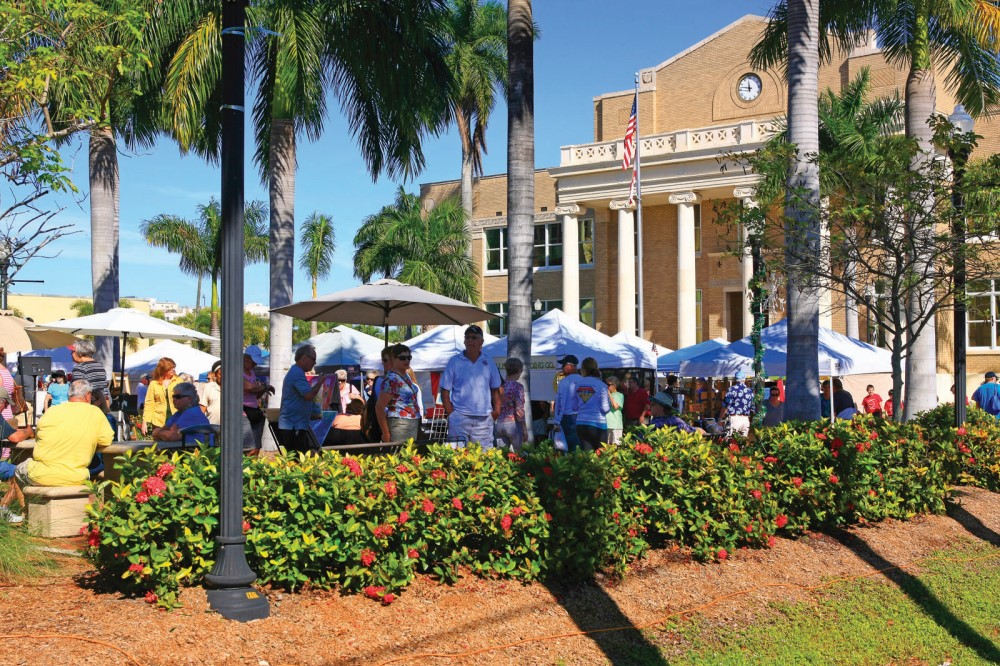
The one-percent local option sales tax is an important revenue stream in Charlotte County and has been consistently approved by our voters since 1994. Over the years, this has generated more than $430 million and funded more than 120 projects.
Our program was due to expire on December 30, 2020, and would only continue for the next six years with approval of our voters in a referendum on the ballot in November.
I was tasked, for the first time, with leading this process from the initial development of the projects that would be funded to outreach and education about the projects and the process to hopefully gain approval from our citizens at the election.
The first part of this was a relatively smooth process and our list of projects was completed early this year. Moving into the outreach and education process, we had a great game plan. A speaker’s bureau, visiting lots of associations and organizations, public meetings, and a strong emphasis on in-person communication. This had worked in the past and there was no reason to think that 2020 would be any different. Boy, was I wrong!
COVID hit in March, just as we were getting our list of projects finalized and preparing our ballot language. I’ll be very honest, my heart sank. How was I supposed to gain approval for a one-percent sales tax in a time when so many of our residents and businesses were looking at closure or financial hardship for an indefinite amount of time? How could I communicate the good that this program does for our community without being able to get in front of people and talk to them? How was I going to be successful in getting this initiative through with all the obstacles, and what were the ramifications if it didn’t pass?
Despite the fear of the local option sales tax not passing for the first time since 1994, I had no option but to put all I had into switching to a new plan and doing everything I could to educate our residents about the program.
Our team quickly developed a new communications plan together, pulling in other partners and stakeholders from across the county. We needed to turn this into a grassroots, word-of-mouth effort and rely on alternative communications strategies to get our message across.
To overcome the potential loss of in-person speaking engagements (we ended up conducting only three such meetings), we decided to augment past outreach strategies and expand our use of social media. A series of videos describing each proposed sales tax project was produced and distributed through the county’s television channel and social media. The county also used Facebook Live to explain the sales tax process and projects. We answered questions from viewers during the livestream and in the livestream’s comments section. A total of seven videos received thousands of views and hundreds of comments, and were shared by many viewers with friends and family.
The county also added the social media platform NextDoor to its menu of outreach portals. NextDoor boasts nearly 50,000 members in the county and has a reach of more than 100,000 people in homes with accounts.
In addition to social media videos, county staff increased outreach via local traditional media, including articles submitted to the local newspaper. Those articles supplemented stories planted with local television stations and advertising purchased on local radio and newspapers that have long been part of the sales tax outreach strategy.
Other new methods of informing the public about the sales tax’ impact included affixing decals to doors of facilities funded by the sales tax and putting informational posters inside those facilities. Our libraries had quickly adapted to COVID restrictions, implementing a very successful curbside pick-up option that was widely used by our residents. We decided to capitalize on that audience by printing bookmarks that highlighted how the one-percent local option sales tax has improved our library system throughout the years.
Given the trend toward mail-in voting in Charlotte County in recent elections, county staff decided to mail postcards with sales tax information to 15,000 voters who requested mail-in ballots as of the day that ballots were mailed. (More than 45,000 voters ultimately cast mail-in ballots in the election.) This had only been done once before, prior to the 2008 election. The postcard mailing accounted for nearly half the county’s $36,000 outreach budget.
On the evening of the election, the refresh button on my computer was overused as I waited, with bated breath, to get the results. I knew that because of the dramatic increase in mail-in voting, I would know almost immediately if our efforts had been successful. At a little after 7:00 p.m., the results came in and it was time for celebration.
The 2020 one-percent local option sales tax referendum passed by a 68-32 margin, by far the largest ever. As my administrator, Hector Flores, wrote in a thank-you note to voters, “The margin of the referendum’s passage was nearly 25 percent higher than in 2014, which sends a strong message that voters trust their local government to deliver on its promise to invest the funds in a timely, efficient, and effective way.”
Communication is key in any organization, especially during crises. Adapting to changing environments, finding new ways to reach constituents, and communicating a consistent, easy-to-grasp message are essential to the success of any outreach strategy—however the message is delivered. In this case, our strategy was a great success and has laid the path for our outreach programs for years to come.
EMILY LEWIS is deputy county administrator, Board of County Commissioners, Charlotte County, Florida.
New, Reduced Membership Dues
A new, reduced dues rate is available for CAOs/ACAOs, along with additional discounts for those in smaller communities, has been implemented. Learn more and be sure to join or renew today!
